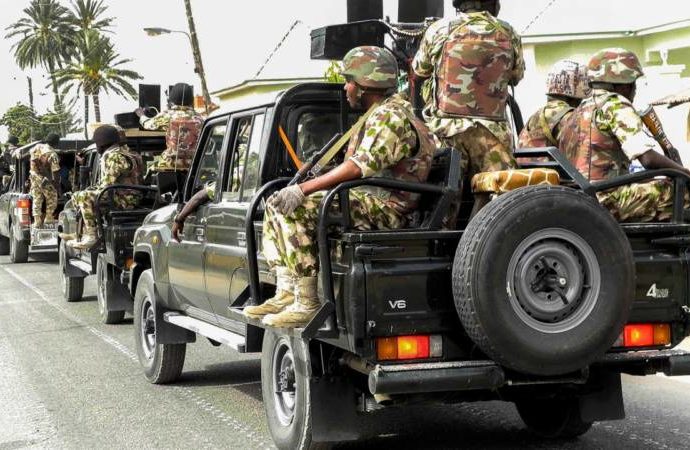RIGHT from the inception of his administration, President Muhammadu Buhari made it abundantly clear that he is out to fight corruption, a terrible cankerworm, that has deprived Nigeria of true greatness and stunted her development.
Infact, the war against corruption, the President has repeatedly pointed out, is one of three key cardinal policies of his administration, the other two being security and the economy. Earlier on at the restoration of democracy in 1999, President Olusegun Obasanjo identified corruption as Nigeria’s enemy number one, hence the very first executive Bill he presented to the National Assembly was the Bill for the establishment of the Independent Corrupt Practices and Allied Offences Commission, ICPC.
Political victimization
This was followed later by the Bill establishing the EFCC. Those who faced investigation and prosecution at that period in order to get off the hook whipped up sentiments by claiming that they were being targeted or singled out for political victimisation. As the State fought corruption, corruption fought back ferociously.
President Buhari very quickly in the life of his own administration established the Presidential Advisory Committee Against Corruption whose Chairman, Professor Itse Sagay, SAN, and members are persons of integrity. As before, PMB’s efforts at combating corruption is again under attack from various quarters and guises, one of which is the accusation that he is carrying out selective justice. By this the critics imply that it is wrong to go after a few culprits unless all the guilty are equally exposed and punished. In other words and in their thinking, if government cannot arrest and prosecute all the thieves who looted public funds, it has no right to and must not single out any one or some of them to face justice. To do so, they argue, would amount to selective justice. It is obvious that this campaign is being used to undermine the anti-corruption drive by government.
Ideally, no sinner should go unpunished. Every offender ought to be brought to book and punished. Regrettably, however, in life it is never possible to catch and punish all thieves. For instance, to take the crime of rape, studies have shown that only about twenty percent of rape cases ever get reported. Of that number only about 12 percent get to the court and only about five percent of those result in conviction. Should it then be a defence to an offender that because other rapists are at large he should therefore be set free? Again if five persons carry out robbery and three of them are at large, has this ever been a reason for not prosecuting or jailing the two that were unlucky to be arrested? The same argument goes for other offences. As a matter of fact, I know of no country where the notion of selective justice is a defence under their criminal law and Nigeria is not an exception.
It must not be forgotten that when those who are being investigated or are facing prosecution for corruption were looting public funds with impunity, they carefully selected themselves in the act of stealing. The rest of Nigerians did not matter to them and did not partake in their brazen looting. In fact, they regarded honest Nigerians who are not corrupt as fools.
If, therefore, they are being selected for prosecution they have themselves to blame and should not curry any sympathy from the public who as a matter of fact are the victims of their criminal actions. Since they were selective in the stealing they have no moral or legal right to raise the notion of selective justice as a defence or to try to cast aspersion on and diminish the anti-corruption strides of government.
Nigeria’s criminal law, law of evidence and criminal procedure law, like the laws of other nations, envisage that not all criminals or parties to an offence including their accomplices will necessarily face prosecution or, if prosecuted, suffer the same penalty upon conviction.
In no country on earth are law enforcement agencies able to arrest every criminal or prosecute all those arrested or secure their conviction. Even in developed countries, the police are known to spare criminals in the underworld known to them who help provide the police with vital clues or information leading to the arrest of dangerous criminals.
The law allows the prosecution a discretion as to whom to prosecute and they may choose to turn a co-accused into a prosecution witness if this is in the interest of diligent prosecution. In a well-structured system of plea bargaining, a criminal may be spared prosecution or get away with a light sentence if he agrees to testify as a prosecution witness against the kingpin or mastermind of the crime where, otherwise, it would be difficult to secure a conviction.
Selective justice
Regrettably, in Nigeria, some people are quick to erroneously label this selective justice, not knowing or pretending not to know that it is legitimate, permissible and valid under our laws. Our Constitution even gives the Attorney General the power of nolle prosequi to discontinue the trial of any person if this is in the public interest, the interest of justice and due process.
Public concern must be to ensure that whoever is charged to court with the commission of an offence receives fair trial and gets justice in accordance with the law. This is not negotiable. The law enforcement agencies must be encouraged to do more to investigate, arrest and bring to justice every criminal big or small because the rule of law demands nothing else. However, given a choice between selective justice and no justice at all, the former must prevail. Selective justice is far better for society than allowing any thief to get away with his loot.
With the recoveries of stolen money being recorded, we can see that government’s approach is yielding good result despite the hue and cry about selective justice. There are many defences under our Constitution, the Criminal Code and Penal Code as well as the various statutes creating offences (such as the EFCC Act) available to persons facing criminal trials but selective justice is not one of them. People should stop pleading it in defence of suspects because it is unknown to our jurisprudence.
* Prof. Osunbor,KSC, was former Chairman, Nigerian Law Reform Commission
Source: vanguardngr.com





